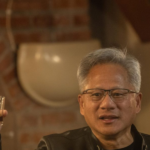The world’s two largest economies shouldn’t totally cut themselves off from each other, but the U.S. still needs self-sufficiency in key areas, according to Treasury Secretary Scott Bessent.
Speaking in Geneva, Switzerland, on Sunday immediately following negotiations with his Chinese counterparts, Bessent said “neither side wants to decouple.” But he later clarified that some decoupling is desired.
That means protecting the steel industry as well as sources of “critical medicines” and semiconductors, he added.
In fact, separate U.S. tariffs on imported steel, aluminum and autos will remain in place—on China as well as most other trading partners. President Donald Trump has also threatened tariffs on pharmaceuticals and chips.
Last month, he put a temporary hold on “reciprocal” tariffs that applied to individual countries, but it doesn’t apply to industry tariffs. On Monday, Bessent emphasized that point when it comes to China, saying “the reciprocal tariffs have nothing to do with the specific industry tariffs.”
In addition, a 20% U.S. tariff on China that’s predicated on its role as a source of fentanyl-related supplies also remains in place.
That means Trump’s tariffs on China are coming down to 30% from 145% for 90 days, while China is cutting its retaliatory levies to 10% from 125%.
Both countries also agreed to create a “consultation mechanism” for future discussions on trade and economic issues. Trump said Monday that tariffs on China will go up again if a long-term deal isn’t reached, but they won’t go all the way to 145%.
Meanwhile, Bessent told CNBC that during the 90-day period, the two sides will also work on non-tariff trade barriers, adding that the U.S. seeks to open up China’s economy further to give American businesses greater access.
“I would imagine that in the next few weeks we will be meeting again to get rolling on a more fulsome agreement,” he predicted.









